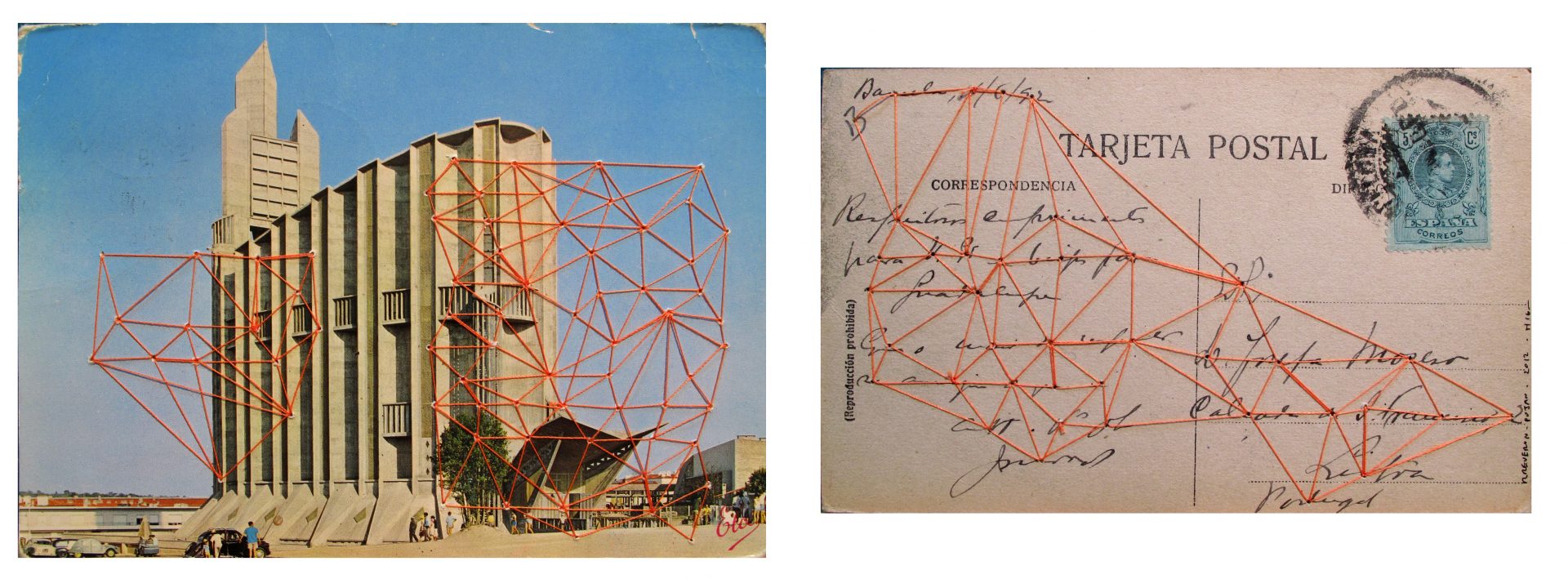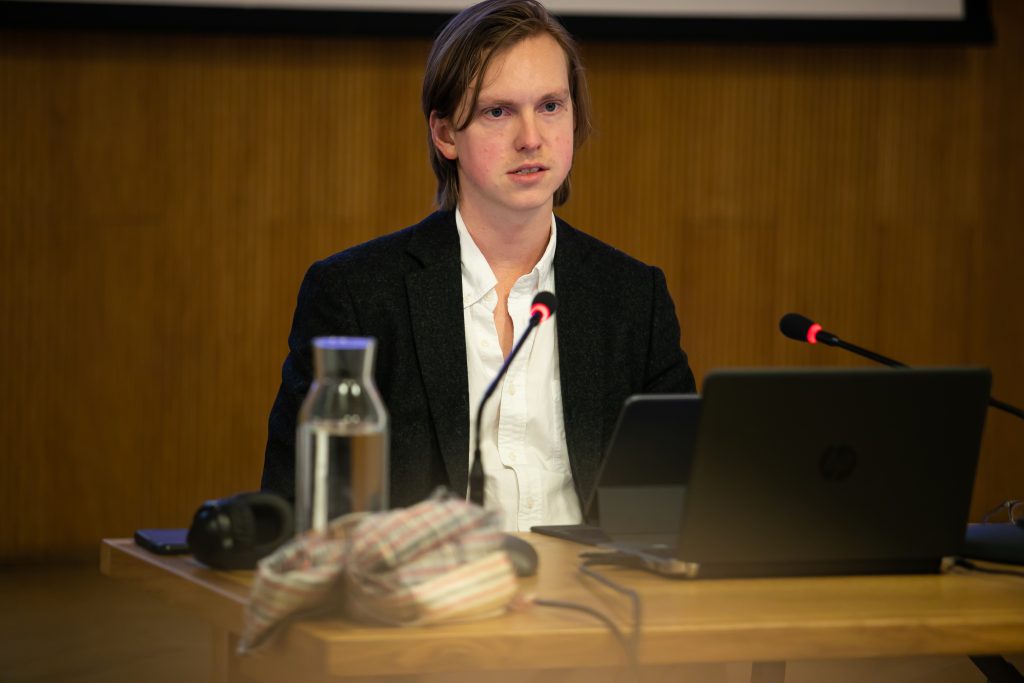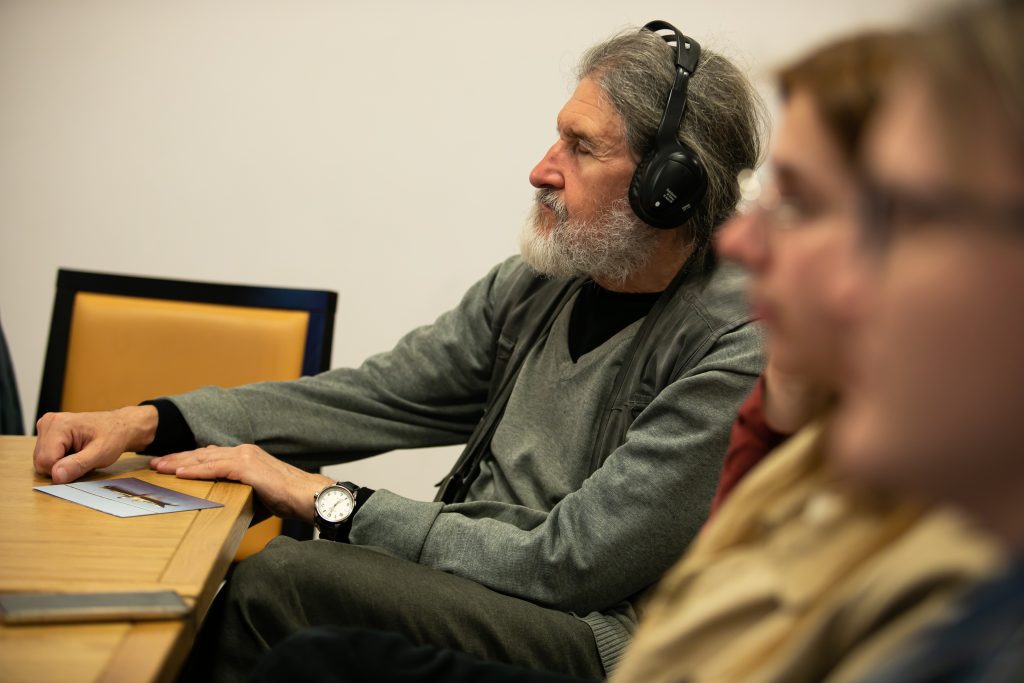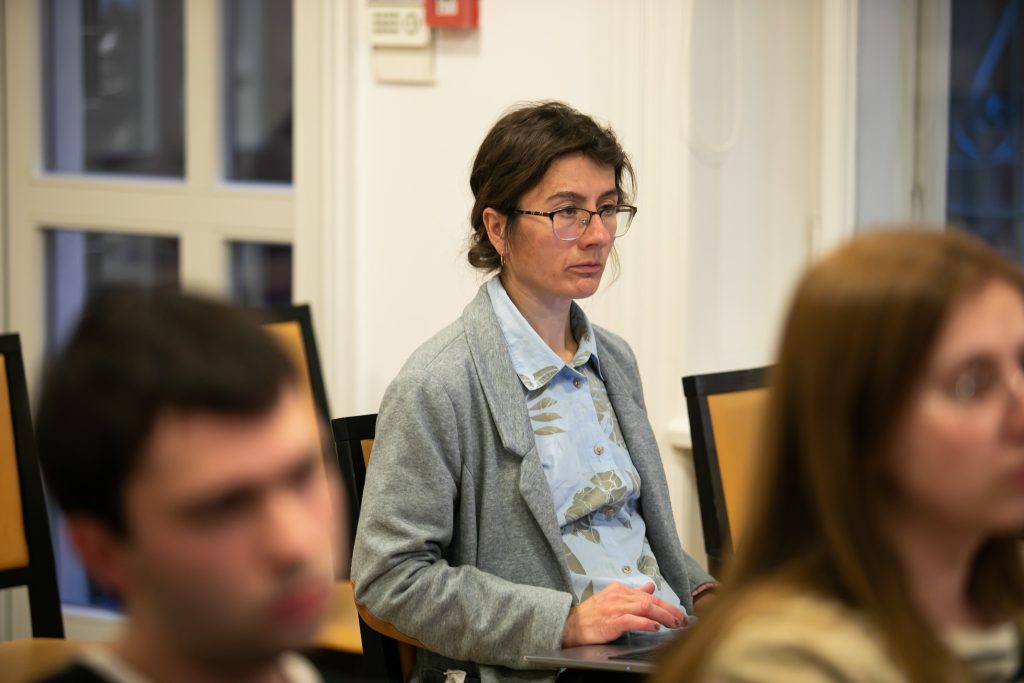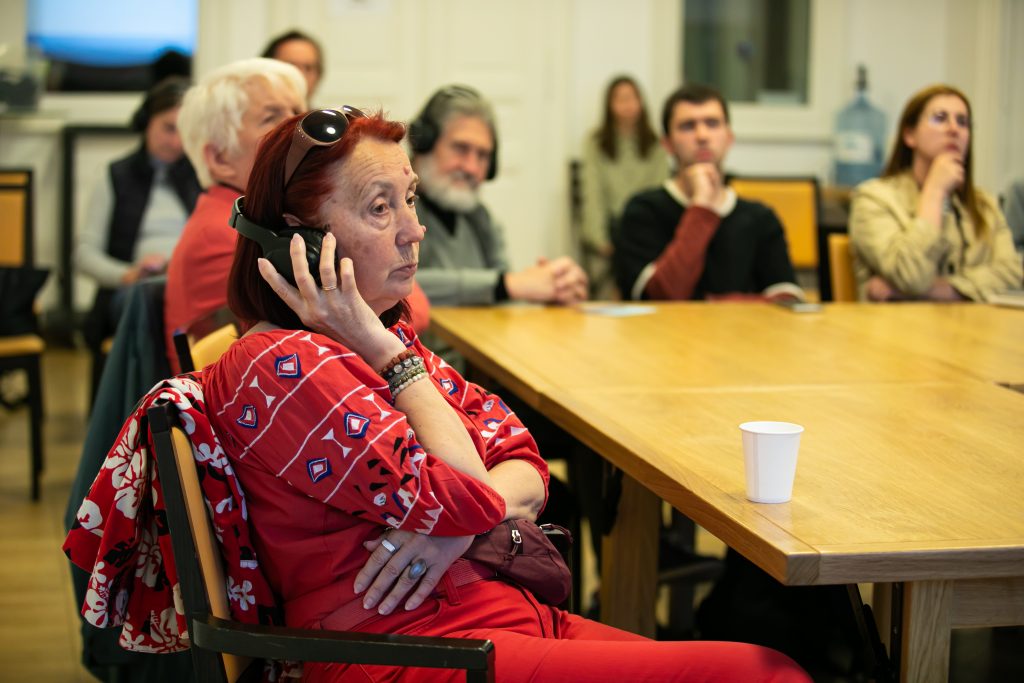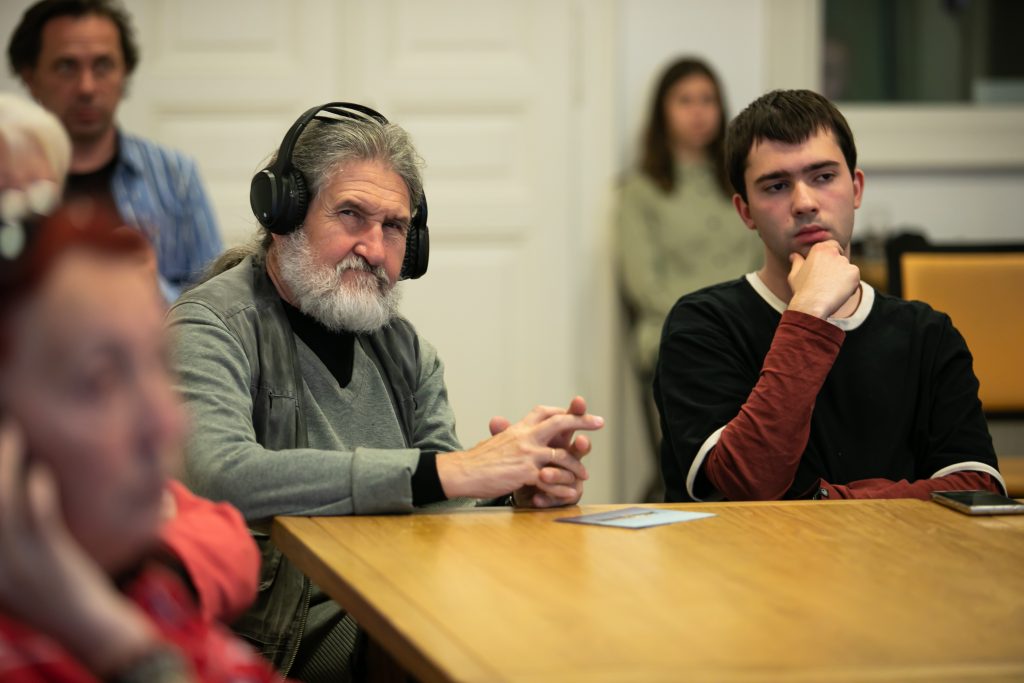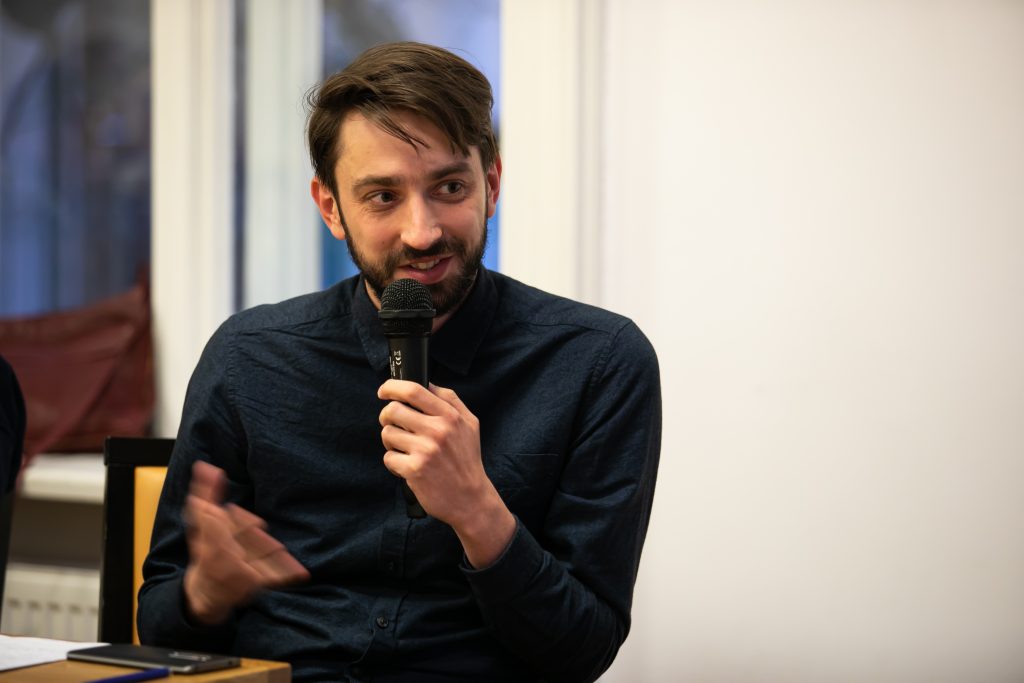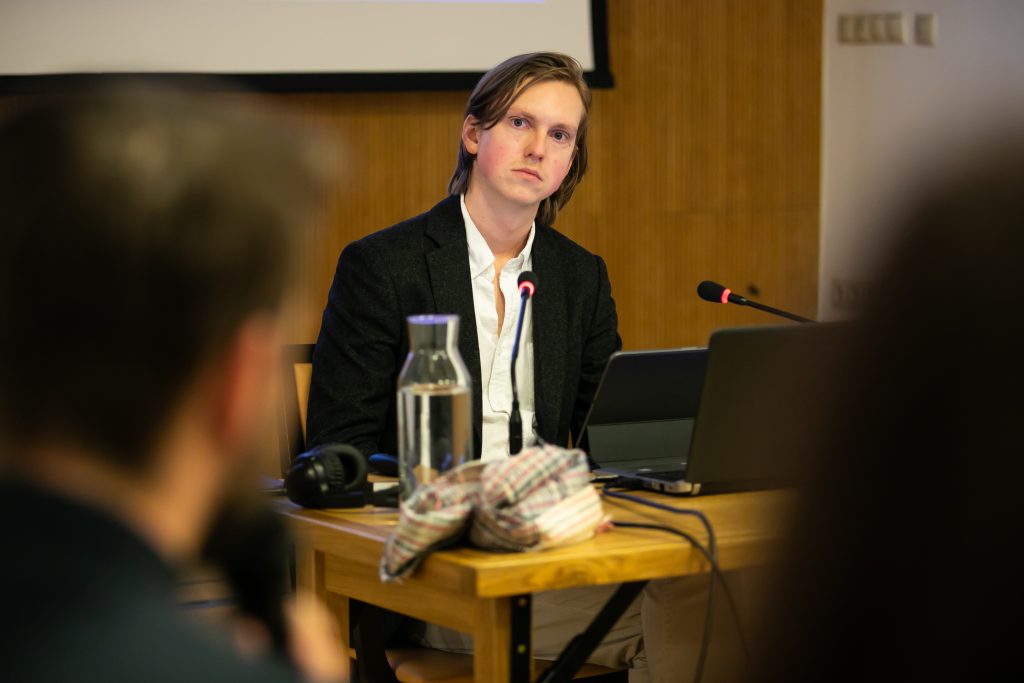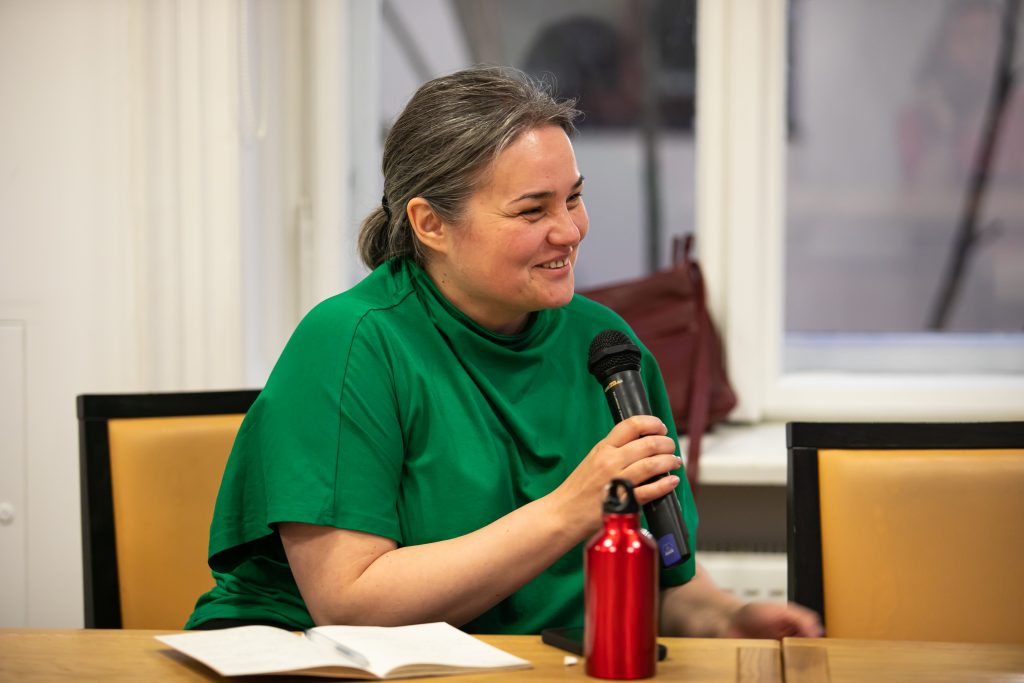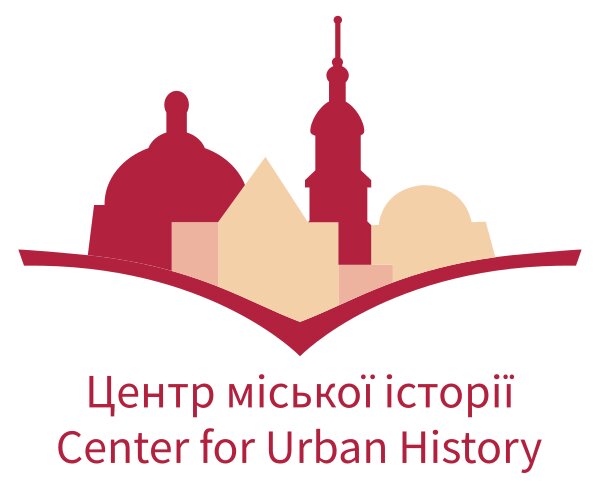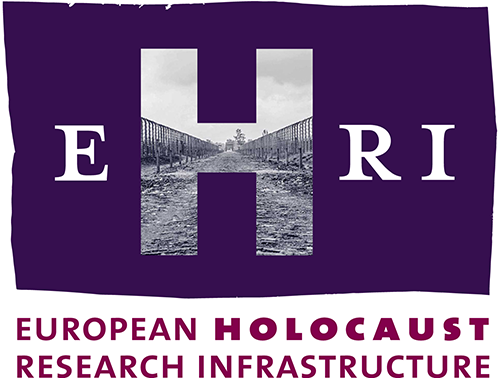The Historian and the Pollster: Navigating Communist-Era Social Science Archives
Alexander Langstaff
New York University13.5.2024, 18:30
Conference Room of the Center for Urban History
We invite you to a lecture by Alexander Langstaff in which he will discuss the forgotten emergence of opinion surveys in postwar Eastern Europe and their role – through a close reading of selected archival materials from organizations in Czechoslovakia, Poland, and the Soviet Union – in packaging emotions, attitudes, and expectations as sources of social data, and in turn, transforming archives into "databanks" of the kind that we take for granted today. He will argue that the conceptual and cultural history of opinion polling offers us a valuable story of foreclosed opportunities in twentieth century Europe at a moment when the concept of the "public sphere" is in crisis.
At the heart of this lecture will be the question of how historians can constructively approach sources generated by social scientists in authoritarian environments. How were these archives produced, and how can we use them? What, from among many proposed identities, is their real epistemological status: are they "voices", "relics", "artifacts", "performances", "blind data", or counterfactual absences? How does this status change between historians, political scientists, sociologists, and anthropologists? And do these differences matter?
The rapid and mass datafication of subjectivity created numerous methodological challenges for social scientists either side of the Iron Curtain. Alexander Langstaff will explore these questions by discussing how pollsters navigated the tensions between disclosure and intimacy, privacy and publicity that are inherent to opinion surveys, as well as how they responded to the broader threat that “civilized violence” and repression under late communism posed to the legitimacy and longevity of their research.
Center's researcher Taras Nazaruk will moderate the event.
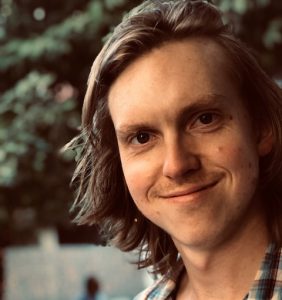
Alexander Langstaff
New York UniversityA historian interested in the cultural, intellectual, and political stakes of the social sciences in twentieth century Europe. His PhD dissertation (New York University) traces public opinion polling in postwar Czechoslovakia. He is a lecturer at the University of Oregon. He is currently a residential research fellow at the École Normale Supérieure-Ulm in Paris. His writing has appeared in academic journals as well as Artforum magazine, New Eastern Europe, and the LA Review of Books.
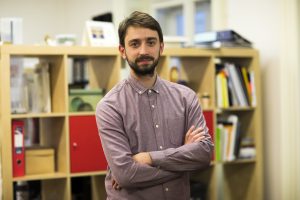
Taras Nazaruk
Center for Urban HistoryHead of Digital History projects at the Center, since August 2016 he has been working on coordinating the project “Lviv Interactive“. Obtained a Master’s degree in Communication Design at the University of Wrocław (Poland). As an Erasmus Programme member, he studied at Masaryk University (Brno, Czech Republic), where he studied cultural anthropology and social media. His areas of interest include new media, digital humanities, and communication design.
The event will be part of the Center's public program, "Source as a Choice," organized by the Center for Urban History in cooperation with EHRI. During the meetings, researchers will share their work with various sources on war and mass violence in the twentieth and twenty-first centuries. The choice to create and preserve sources can be one of the tools for embodying this violence or, on the contrary, for opposing it. Our choice to talk about these events through the prism of certain sources creates a field in which the complex past will live on in the present and future.
Credtis
Cover Image: Rafael Reveron, Homage to Gego
Gallery: Ira Sereda
